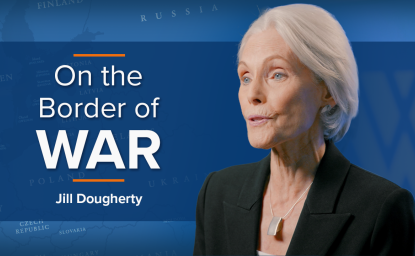Two Years in Iraq
Two years after the invasion of Iraq Americans are ambivalent about the war. Former Congressman Lee Hamilton goes over the successes, and huge costs, of the war.
Two years after the invasion of Iraq Americans are ambivalent about the war. Former Congressman Lee Hamilton goes over the successes, and huge costs, of the war.
Two years after the American-led invasion of Iraq, Americans are ambivalent. They think Iraq is better off, but are not sure that the war was worth fighting; they see progress, but also feel we are bogged down in a complex and costly conflict.
There are some clearly positive developments. Saddam Hussein is out of power and in prison. His downfall removes a threat to U.S. national security interests, and a destabilizing force in the region. It also gets the Iraqi people out from underneath the boot of a terrible tyrant. Recent elections bring hope that a first pillar of democracy has been established: Iraqis enjoy new freedoms; women are taking new responsibilities; and many people have cast the first meaningful vote of their life.
There are also promising, if tentative, signs that hope might spread throughout the region. In recent weeks, Lebanon has witnessed demonstrations of popular will; Syria has indicated it may remove troops from Lebanon; Saudi Arabia and Egypt have taken small steps towards a more open political process; and the Palestinians have elected a leadership that is negotiating with Israel. It is hard to say how much of this is tied to Iraq – for instance, Yasser Arafat's passing created its own window of opportunity. But Iraqi elections have breathed some life into a region that has known largely repression.
The price has been high. To date, over 1,500 Americans have died in Iraq. 11,300 more have been wounded, many severely. 150,000 American troops remain in Iraq as the bloody insurgency continues. Over $200 billion has been spent, and the price tag rises by the day. The combination of war-spending and tax cuts has fed a deficit that is climbing over a half-trillion dollars.
America is overstretched because of the war. The U.S. military is tied down in Iraq, and it is extremely unlikely that we could handle another conflict – for instance, in North Korea. Our armed services are facing a recruitment and retention crisis that is so intense that the Army has added thousands of new recruiters, is giving enlistment bonuses of up to $20,000, and raised the maximum enlistment age for new recruits to the Army Reserve and National Guard to 39; the all-volunteer force may not be sustainable as we know it.
The war has damaged our standing in the world. The failure to find any weapons of mass destruction – the stated cause of the invasion – has cast doubt on our intelligence community and hurt our credibility. The perceived rush to go to war frayed some of our most vital alliances, and has made it harder to obtain cooperation for some other initiatives. Public opinion has become even more profoundly anti-American in the Arab world in response to our occupation of an Arab country, and the abuses at Abu Ghraib and other prisons. The prospect that the invasion fed terrorist recruitment and provided a training ground for militants is likely.
The message of the war to other rogue nations and weapons proliferators is unclear. Libya concluded an extended diplomatic agreement to peacefully give up its weapons of mass destruction. But North Korea – and possibly Iran – seem to have learned the opposite lesson: that the only way to avoid a similar fate is to develop nuclear weapons.
Final judgments about the success or failure of the war in Iraq must wait. A long-term struggle remains, and the ultimate outcome depends upon Iraqis – how they will negotiate and work through differences. The two largest blocs in Iraq – the Shia and the Kurds – still need to break a political stalemate in the formation of a provisional government and the drafting of a Constitution. Sunnis – many of whom did not vote – must be brought into the tent. Iraqi forces are not ready to provide security. Economic reconstruction is stalled, as services remain erratic and unemployment hovers near 50%.
The U.S. will likely maintain a large military and economic presence in Iraq for the near future. We will have to do better than we have over the last two years in anticipating events. Too often, we have been caught flat-footed, and failed to foresee the consequences of our actions. Still, the resilience of our troops and ideals has scored some important gains.
How will Iraq turn out? Political chaos accompanied by violence is possible, as is stability and democracy that sets an example for the region. Only time and events will tell whether the Iraq war has been worth the costs, and whether our decision to go to war will make us safer from – or more susceptible to – terrorist attack.


